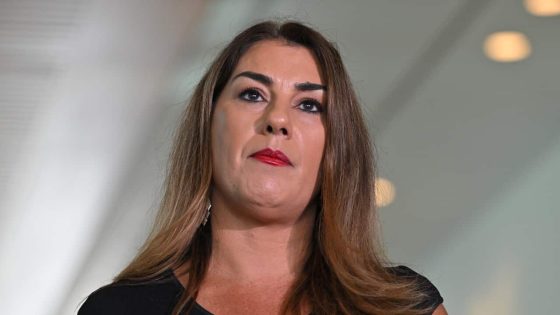Key Points
- The federal government said last month it wouldn’t add new questions about the LGBTIQ+ community to the next Census.
- After a backlash, Anthony Albanese announced a partial backflip, with a question on sexuality to be included.
- Lidia Thorpe says excluding questions on gender identity and sex characteristics is “irresponsible and divisive”.
This article contains references to suicide.
Independent senator Lidia Thorpe has called on the federal government to include more questions about the LGBTIQ+ community in the next Census, saying not doing so would “harm” intersex, transgender and gender-diverse Australians.
Labor pledged in its 2023 national platform that the would be counted in the 2026 Census.
But late last month the government walked back that commitment, despite the Australian Bureau of Statistics (ABS) working with an LGBTIQ+ Expert Advisory Committee to develop and propose new questions for inclusion.
The move — which the government claimed was— drew swift criticism from LGBTIQ+ groups and advocates, experts, and some MPs
Prime Minister Anthony Albanese backflipped on Friday and confirmed about “sexuality, sexual preference” would appear in the next Census.
Thorpe said not including all of the proposed new questions in the Census would not only mean intersex, transgender and gender diverse Australians were “left uncounted”, but it would also have “real impacts” on their access to healthcare and other services.
“The decision by the Albanese government to exclude questions on gender identity and sex characteristics from the Census is appalling,” she said in a statement on Thursday.
“They need to stick to their promise and reverse this decision.
“This irresponsible and divisive decision will harm intersex, trans and gender diverse people.”
Thorpe pointed to recent findings made by the Victorian coroner into the deaths by suicide of five young transgender women, which noted there was a need for improved data collection about the community.
“Robust data is needed as a matter of priority to inform health, wellbeing, and suicide prevention initiatives in the TGD (transgender and gender diverse) community,” Coroner Ingrid Giles’ wrote in her report on , which was handed down last Thursday.
“It is evident that accurate estimates of the proportion, distribution, and composition of the TGD population, as well as projections of resources are required to adequately support health needs of TGD people, will ultimately depend on the availability of systematically collected high-quality data, such as via the Australian Census.”
On Wednesday, several major health and research organisations issued a joint statement warning of the potential adverse outcomes not including the questions would cause.
“When populations are invisible in the Census, they are at increased risk of marginalisation and disadvantage,” the statement said.
“The omission of comprehensive data collection on sex, gender, and innate variations of sex characteristics in the 2026 Census will undermine our ability to understand the health needs and socioeconomic wellbeing of LGBTI+ populations.”
Thorpe said it was clear that accurate information about where intersex, transgender and gender-diverse Australians live was needed so services and support could be targeted to those areas.
“It’s utterly shameful that Albanese is dismissing the [Victorian] coroner’s findings, and the calls from health experts,” she said.
“We need to stand strong with the trans and gender diverse community right now.”
How are LGBTIQ+ Australians reflected in the Census?
In 2016, for the first time since 1911, the online version of the Census offered a sex other than male or female, with the option of ‘other’.
Then in 2021, the Census allowed all respondents to select from male, female and non-binary sex.
It did not have a question on gender or variations in sex characteristics, or sexuality.
With reporting by David Aidone and Ewa Staszewska
Readers seeking crisis support can contact Lifeline on 13 11 14, the Suicide Call Back Service on 1300 659 467 and Kids Helpline on 1800 55 1800 (for young people aged up to 25). More information and support with mental health is available at and on 1300 22 4636.
LGBTIQ+ Australians seeking support with mental health can contact QLife on 1800 184 527 or visit . also has a list of support services.
Intersex Australians seeking support can visit Intersex Peer Support Australia at isupport.org.au
Source Agencies

